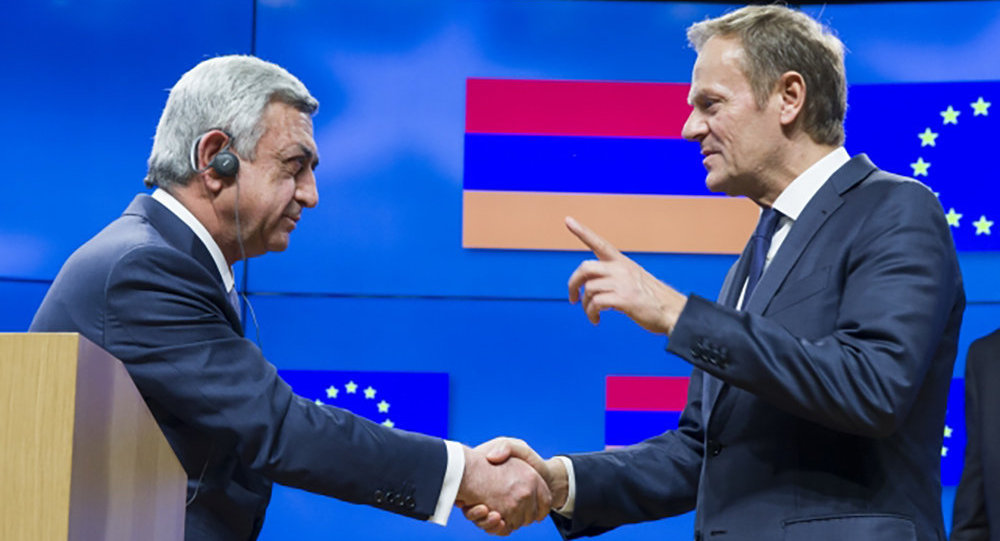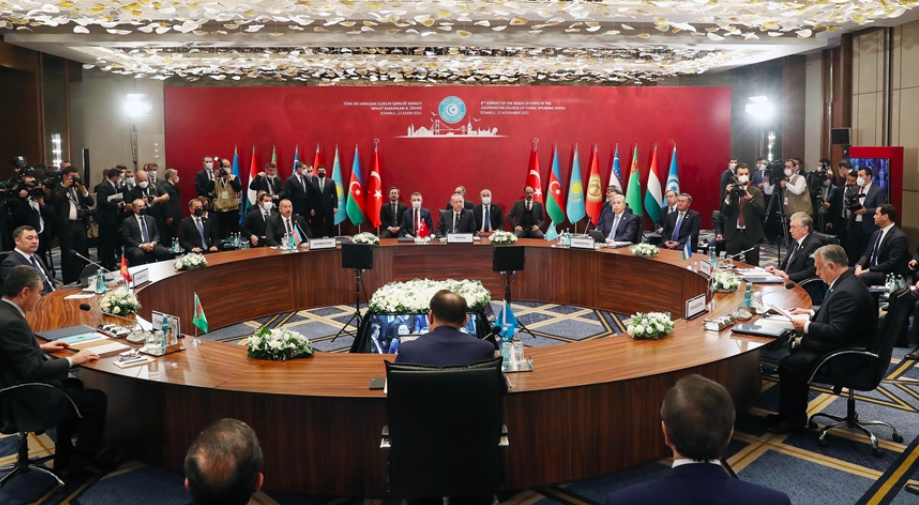The European Union is in economic hardship since 2009. Rather than signs of recovery and improvement, the prospect of going into recession has again emerged. Alarm bells for the European Union are surely not for the short term. The accumulated capital since the industrial revolution and in fact even earlier from the period of colonialism, highly developed infrastructure, the level of high technology, its substantial weight in the financial markets are resources to provide the possibility for the EU to maintain its lead as a global economic power for a long time to come. The problem at hand emerges as whether the attained level of welfare and economic progress can be sustained.
New actors have entered the stage in the globalizing world economy, distribution of resources worldwide has shifted, the level of technology has been globally spread and access to markets has ceased to be at the monopoly of the West. It could be assumed that one of the main indicators of economic power is access to energy resources and level of energy production. The last report the “2012 World Energy Outlook”, an annual publication by the International Energy Agency (IEA), formed by the major oil consuming countries based in Paris, inspired by OPEC which includes the Middle East countries producing crude oil, sheds some light into the future in this regard.
According to the report, world energy demand will increase by one third by 2035. The share of crude oil rises from today’s 87.4 million barrels per day (bpd) to 99.7 bpd. 60% of the increase in energy demand will originate from China, India and the Middle East. Demand from OECD countries will remain fixed. The EU foresees a reduction of 20% in energy demand by 2020. The US appears to have separated itself from this grey forecast for the western economies. As stated in President Obama’s election victory speech, the US has been able to develop technologies with economic feasibility to go into production on extracting light tight oil and shale gas of which large resources have been discovered in the country. As a result of this, the US is projected to become the largest global oil producer overtaking Saudi Arabia in mid 2020’s. (Declaration of such a development with almost fanfare, which traditionally merits discretion or even secrecy, could be the subject of a separate research from a point of view of Eurasian geopolitics and the reflections on foreign policy of eventual decrease of the vital interests of the US on oil transportation lines and in the gulf region.)
It would be worthwhile to observe the EU’s options from the perspective of Eurasia at a juncture where the global economic gravitational field appears to be moving towards the Pacific shores, where China has the potential of being the largest economic power and steadily progressing in that direction, with the new Chinese leadership expected to stay in power in the coming decade expressing the priority to maintain the economic momentum. Before anything else, it is possible to say that the EU’s economic future will be in Eurasia and that it will need to further develop its relations with Asian countries, China being at the forefront. Theoretically, the EU is in a position to still be able to contribute to China on assets like high tech, know-how, marketing, research and development. On the other hand, China’s extraordinary foreign exchange reserves and foreign investment power is there to whet the EU’s appetite.
From its side, China attaches importance to its relations with the EU. 20% of its total exports are to EU countries. The urgent necessity of the EU today is investment to be made to its treasury bonds. Considering that half of the EU’s government debts, which has reached 6.5 billion Euros, find themselves in the risky category, it is no surprise that China prefers to invest in foreign direct investment (FDI). In fact, the remittance of FDI of 2.3 billion Euros to the EU in 2009 has multiplied to 7.4 billion Euros in 2010. However, these amounts still remain small compared to China’s total FDI and the EU’s internal investments. It is also to be seen that China makes preferences on countries and puts the priority on Germany, the UK and France.
The EU’s Eurasian relations are surely not restricted to China. As a geographical fact, the EU’s connection to Eurasia goes through Russia or Turkey. Since the EU sees Turkey as a big chunk to chew and digest, in this context its connection with Russia is perhaps that it could be the big chunk itself. The EU’s approach towards Turkey is hampered by non-economic biased and subjective elements. Political and other prejudices exceeding economic interests most likely also entail a drawback for the EU in its expansion to Eurasia.
© 2009-2025 Center for Eurasian Studies (AVİM) All Rights Reserved
 THERE ARE JUDGES IN STRASBOURG
THERE ARE JUDGES IN STRASBOURG
 THE EUROPEAN UNION’S BRAND NEW AND “PRIVILEGED” PARTNER: ARMENIA
THE EUROPEAN UNION’S BRAND NEW AND “PRIVILEGED” PARTNER: ARMENIA
 THE NEW REVENGE OF LAW ON POLITICS
THE NEW REVENGE OF LAW ON POLITICS
 THE STATEMENT OF ARMENIAN NATIONALISTS AND THEIR SUPPORTERS PUBLISHED IN THE FRENCH NEWSPAPER LIBERATION
THE STATEMENT OF ARMENIAN NATIONALISTS AND THEIR SUPPORTERS PUBLISHED IN THE FRENCH NEWSPAPER LIBERATION
 FROM TURKIC COUNCIL TO ORGANIZATION OF TURKIC STATES
FROM TURKIC COUNCIL TO ORGANIZATION OF TURKIC STATES




























